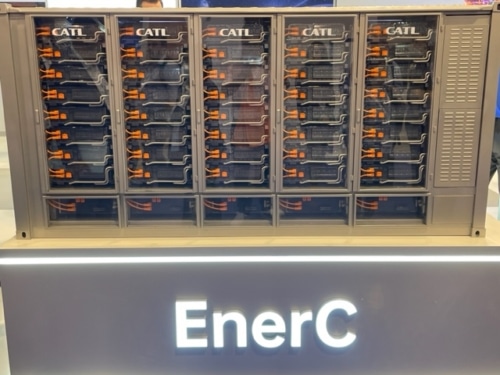COMMERCIAL ENERGY STORAGE COSTS
Understanding commercial energy storage costs, savings, and incentives is critical to all large businesses transitioning to solar and storage nationwide. Commercial battery energy storage not only helps businesses to become more energy-efficient, but it also provides cost savings in the long run. However, the cost of commercial energy storage is a significant factor that businesses need to consider.
The cost of commercial energy storage can vary depending on several factors, such as the size of the system, the type of battery technology used, and the location of the project. However, the main cost of storage systems is typically attributed to the battery component of the system.

Commercial Battery Storage Systems Types
Lithium-ion batteries are currently the most popular battery energy storage technology used in commercial energy storage systems. The cost of lithium-ion batteries has been steadily declining in recent years, making storage systems more accessible to businesses. According to a recent report by BloombergNEF, the cost of lithium-ion batteries has fallen by 89% since 2010.
How are lithium-ion batteries priced?
The cost of energy storage is typically measured in dollars per kilowatt-hour (kWh) of storage capacity. According to the same BloombergNEF report, the average cost of lithium-ion batteries was $132 per kWh in 2021. Even further, this was a 6% drop in price from the prior year in 2020 with $140/kWh. This significant reduction in cost has made energy storage systems more affordable and competitive with traditional power sources.
However, it’s important to note that the cost can vary depending on the specific project. For example, larger-scale projects over 1 MW may benefit from economies of scale and lower costs per kWh. Additionally, energy storage projects in remote or off-grid locations may incur additional costs due to transportation and installation expenses.
More price factors
Other factors that can impact the cost of energy storage systems include the type of battery technology used and the project’s location. For example, some battery chemistries may be more expensive than others, and projects in areas with high energy demand or variable energy supply may require larger, more complex systems, which can increase the overall cost.
Despite the cost reductions in recent years, the upfront cost of commercial storage systems can still be a barrier for some businesses and organizations. However, there are several incentives and financing options available to help offset these costs.
Financing and incentive options
Many states offer incentives such as tax credits, grants, or rebates for businesses that install energy storage systems. In the United States, the Investment Tax Credit (ITC) can provide up to 30% of the total cost of a storage project in tax credits. Additionally, many utility companies offer demand response programs that pay businesses and consumers for reducing their energy usage during peak demand periods. This can be a lucrative additional income stream for your company!
Financing options such as shared savings and power purchase agreements (PPAs) can also help reduce the upfront cost of energy storage. With a shared savings service, businesses will realize the monthly energy savings from the battery energy storage system and then pay a percentage (typically half) to the owner of the system at the end of the year. PPAs allow businesses to purchase the energy generated by the system, rather than the system itself, at a fixed rate over a specified period.
Interested in commercial energy storage?
If you are interested in implementing commercial energy storage solutions at your company anywhere in the United States and Puerto Rico (and thereby benefiting from reducing fossil fuel consumption from the utility, increased energy savings, and providing operational sustainability) reach out to us today by clicking on the contact us button below!

